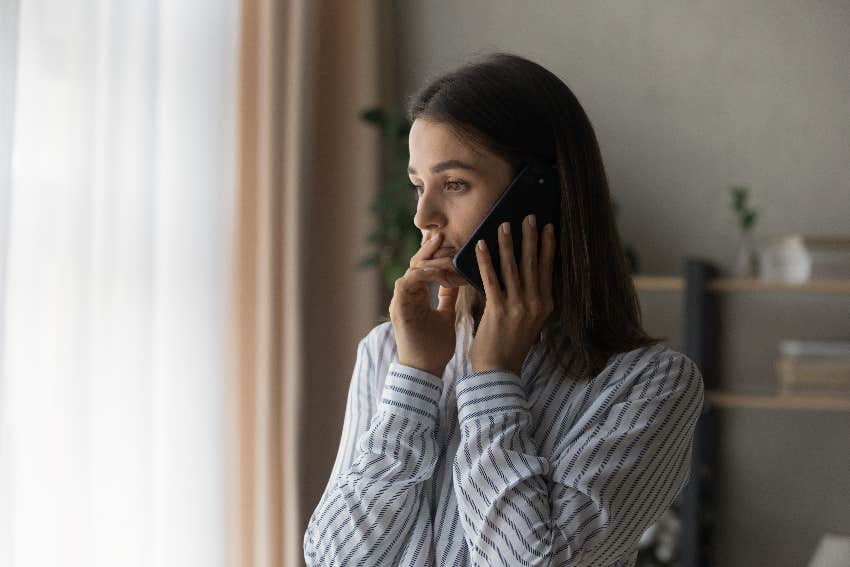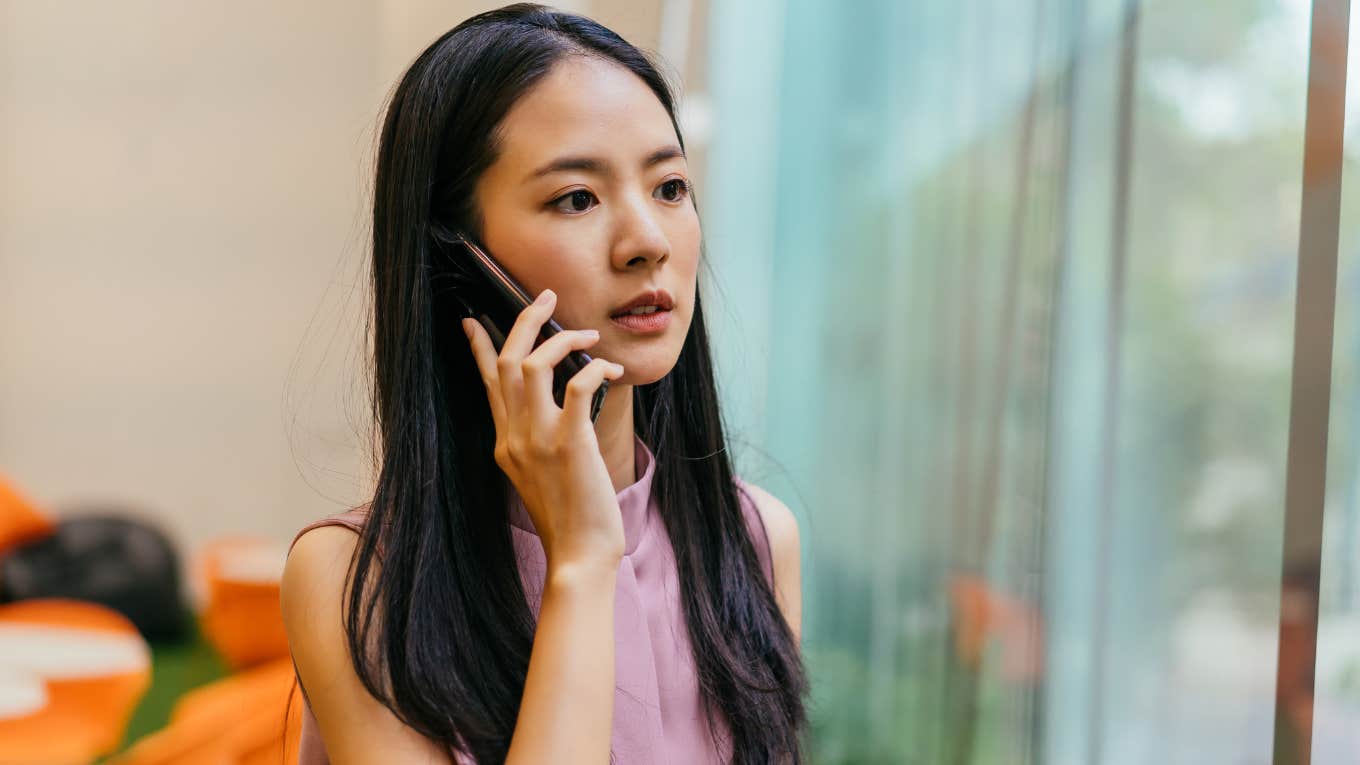Pilar and I had just finished our 8-mile jog around the neighborhood. Without showering, armed with carob and water, we plopped ourselves down on oversized pillows in front of the TV to watch Charlie’s Angels.
Carob, because we thought it was healthier than regular chocolate, and Charlie’s Angels because we thought as 1970s teenage girls — it was empowering. Probably neither of these things was true, but our friendship was one of the truest and most valued things in my life.
Pilar’s mother, Louise, and my mom were friends-ish — they weren’t besties but they weren’t enemies, either. They went to thrift stores, auctions, and garage sales looking for treasure and then had garage sales.
They were the most like friends during the garage sales because they sat in lawn chairs, drinking wine, and getting happily intoxicated. My mother developed her anti-hoarding/clutter disorder before this time, but I believe the high she got from selling her possessions got the soil ready for the seeds of her compulsion to get rid of things. I was grateful for Louise and my mother’s association because I didn’t know if I’d be friends with Pilar if they weren’t connected.
Pilar was my best friend — one year older than me, a cheerleader, and popular.
Popularity wasn’t anything she courted, it just happened. She was kind, beautiful, and smart. Her long legs looked amazing in her short skirt but she preferred jeans and baseball shirts, her brown hair was in a tousled but chic long shag, and she had full lips that never need an application of Bonnie Bell root beer lip smackers.
She broke every cliché about cheerleaders you had, and although she had a wonderful time in school, I bet she never looked back at it as the best time of her life. Her boyfriend was also beautiful and kind, but she didn’t end up marrying him — she married someone who was homely and brilliant.
Being friends with Pilar elevated my status but that wasn’t why I adored her. She educated me about women’s rights and encouraged me to be the best I could be. Hence, the eight-mile jogs.
We did all the teenage late 1970s girl stuff — we went to the movies, we went to the mall and bought cords and shirts with hoods (not hoodies yet, shirts with hoods) at Foxmoor Casuals and Judy’s. We laid out and greased our bodies with baby oil, drank Tab, and ate sunflower seeds.
cottonbro studio / Pexels
One day, Pilar handed me a homemade card. Inside she wrote how I was her best woman friend, how smart and funny and evolved I was, and how our friendship would last forever because of how deep it was, and how connected we were.
She signed it with love. I hugged her a little too hard, hung on a little too long, and tried to wipe away my tears without her catching on.
Pilar had a younger sister, Sissy, who was a bit of a pill. When she wasn’t whining, she was complaining, and if neither of those two got her enough attention, she was annoying — sometimes, especially in the car when Louise was driving us to the mall, Sissy was all three at once.
Per an Internet wellness check, Sissy appears to be alive and thriving which surprises me. If anyone seemed on a path of self-destruction, it was Sissy. Some people do grow up and change for the better.
Since Pilar loved, loved, loved her baby sis, she assumed everyone did, so no longer was it Pilar and me hanging out, it was now Pilar, me, and Sissy. I don’t have to tell you friendship threesomes rarely work because someone always feels left out.
I shut my mouth and pretended to enjoy Sissy’s company because Pilar’s friendship was worth it. But I could only take so much. Pilar called me one night to confirm shopping plans for the next day.
“Sissy is going to come too. Is that okay,” Pilar asked. Here it comes folks, my fatal move.
“Um, Pilar, is it okay, if Sissy doesn’t come with us? I kind of don’t like her.”
Mic drop. Silence.
“You know what? I remember that I promised to do something with Phil tomorrow. Raincheck, okay?” Pilar said and without giving me time to answer, hung up.
 fizkes / Shutterstock
fizkes / Shutterstock
Those were the last words Pilar ever said to me — she ghosted me from her life.
When I called her house, her mom told me she was out, when I wrote her letters, they were returned to me, and when I went to the Good Earth she worked at, making sure to sit in her station, she switched with another waitress.
I was heartbroken. I sent friends to try to talk to her, and while she was perfectly pleasant, she refused to explain to them what I did that was unforgivable. A few years later, my neighborhood had its first street festival. It was a remarkable day because it was the first time I’d eaten a Cheddy brot — sausage with cheese in it, yum, and the last time I saw Pilar.
Like in the movie Gunfight at the O.K. Corral, Pilar walked from one end of the fair, and I walked from the other, but in this fight, we didn’t stop in the middle. I started to say something to Pilar, and she looked through me and walked on by.
While I did learn a valuable lesson: Never talk smack about someone’s relative, even if they’re estranged or they talk badly about them — it wasn’t worth the pain I felt at losing Pilar. It destroyed me, and it took years for me to fully trust people.
In the years that followed, nothing would hurt me more than Pilar dumping me as a friend and ghosting me. She broke my heart and made sure it couldn’t be put back together again. Time heals all wounds, right?
I’m not the only one to be ghosted by a friend. According to a 2018 study published in the Journal of Social and Personal Relationships, 39% of people report being ghosted by a friend.
Well, Pilar became a therapist and has a thriving practice in our old neighborhood. I found her email address and sent her an apologetic email and she never responded.
As a licensed psychotherapist, you’d think she would have some empathy and compassion and be able to forgive a 15-year-old’s faux pas all these years later. Pilar missed the most important message of Charlie’s Angels — female friendship isn’t always easy but it’s worth it.
One UCLA study went out to prove how special female friendships are, stating that when women are stressed, their brain responds with a cascade of chemicals that cause them to make and maintain friendships with other women
Christine Schoenwald is a writer, performer, and frequent contributor to YourTango. She’s had articles featured in The Los Angeles Times, Salon, Bustle, Medium, Huffington Post, Business Insider, and Woman’s Day, among many others.





